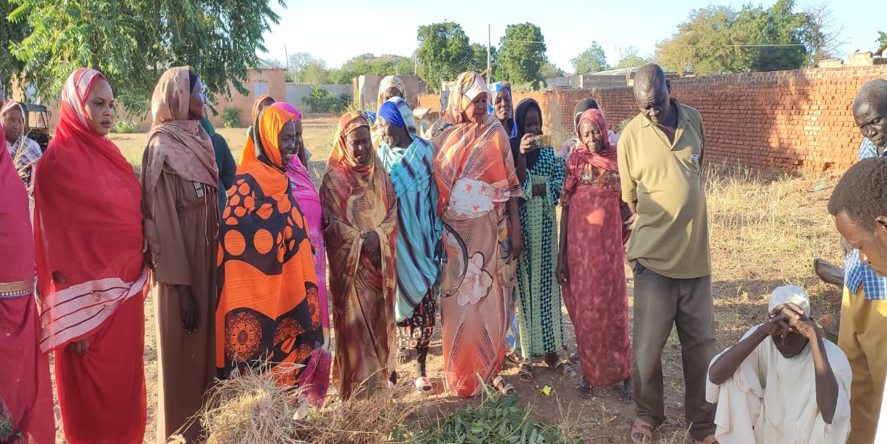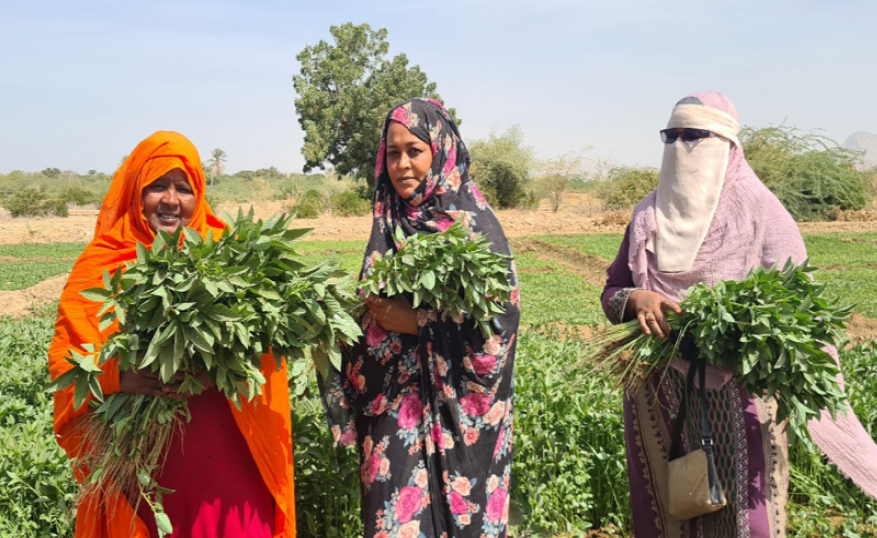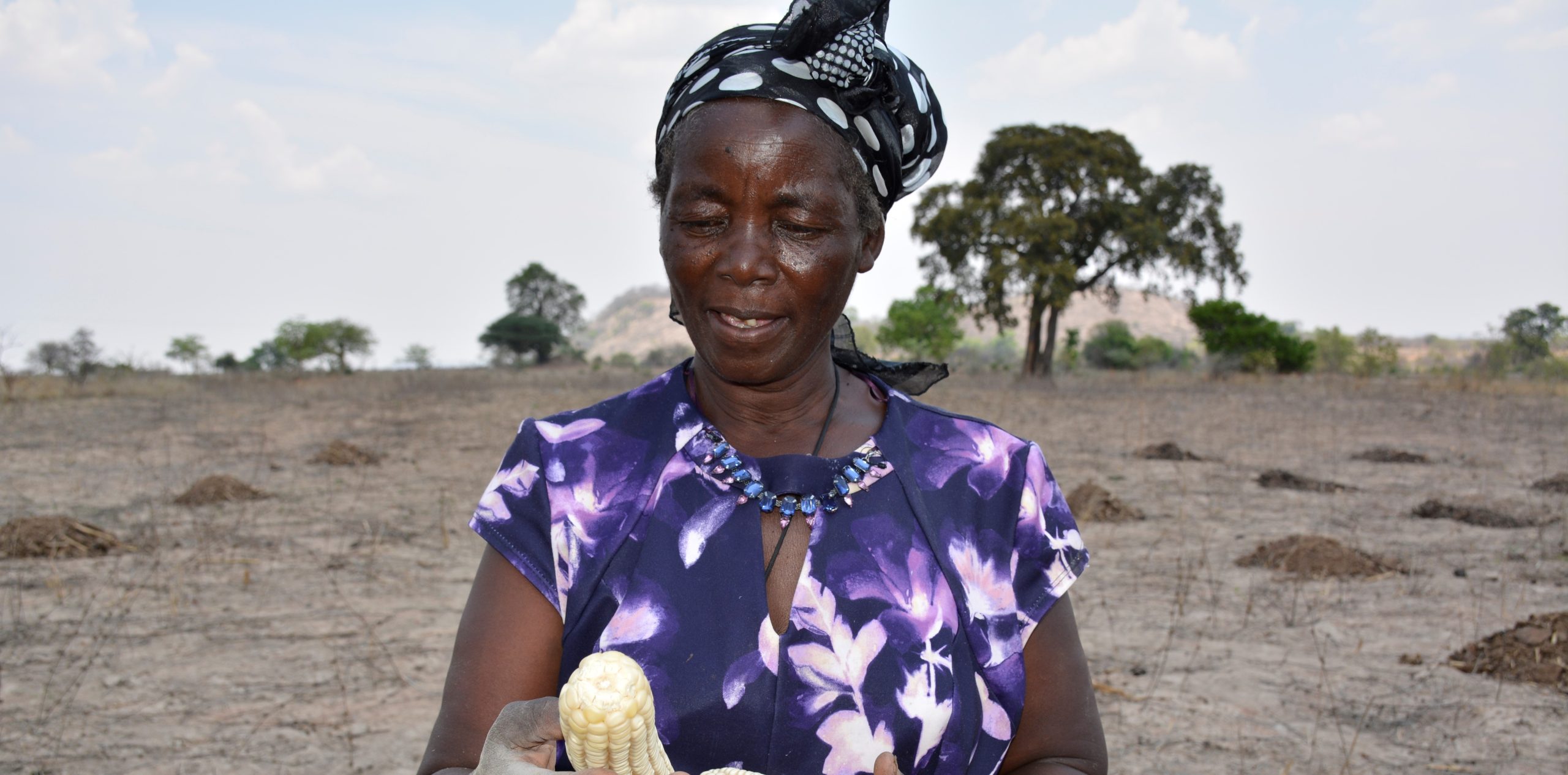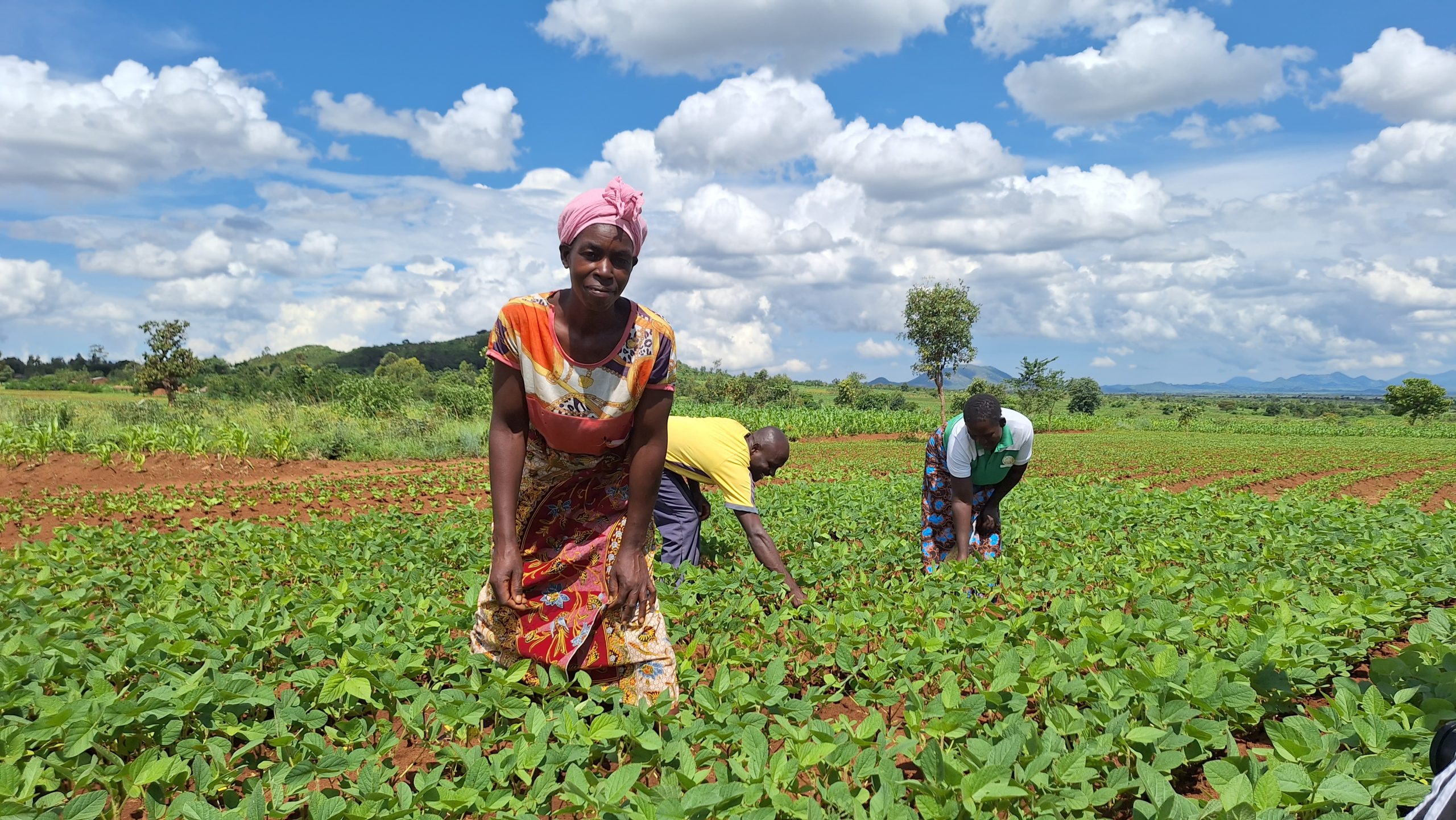Fanta Mohamed, a 48-year-old widow with three children, lives in Aldagag village in South Kordofan. For years, Fanta has worked on her small farm to feed her children. Fanta used local seeds, and her agricultural yield was very poor. It made her wonder where she was going wrong. Fanta, like thousands of women farmers in remote and hard-to-reach areas of South Kordofan in central Sudan, has limited access to quality inputs and agricultural extension services.
In South Kordofan, Mercy Corps, aided by USAID-funded Sustainable Agrifood Systems Approach for Sudan (SASAS), trained 15 local farmers and producers in the Farmer Field School methodology and climate-smart agriculture with the support of officials from the State Ministry of Agriculture.
“At SASAS, we work to empower women farmers, especially those who live in remote areas such as South Kordofan. We help them with agricultural inputs such as improved seeds, new agricultural skills, and techniques to increase their production and help enhance food security amid the looming food crisis in Sudan,” said Abdelrahman Kheir, SASAS chief of party.

To address the challenges of poor seed quality, Mercy Corps contracted local supplier Alzahra Seed for Trade to sell improved seeds at a subsidized price and expand access by establishing last-mile seed retail networks. Alzahra Seed for Trade would also deliver agronomic extension training to farmers in remote villages such as Aldagag.
Fanta recalls how she and other women farmers came to know about the improved seeds. “We were at a coffee gathering at my neighbor’s house, when one of the women told us that Alzahra Seed for Trade’s retail agent had brought improved seeds from Dilling town for sale. We were not even aware of the existence of improved seeds,” she said.
With accessible and affordable improved seeds in Aldagag, Fanta was one of the smallholder farmers who bought seeds from a retailer in her village. She bought groundnut and vegetable seeds and received basic agronomic extension training from the retailer who offered it as an embedded service. In addition to getting access to improved seeds, Fanta was visited by an extension officer from Alzahra Seed for Trade.

Fanta recalls how she managed her farm before she was introduced to improved seeds. “In the seasons before I got the training, my farm looked disorganized. Like other farmers in my area, I didn’t care about the distances between the plants. Local seeds yielded about four or five sacks of groundnut per one feddan (unit of area in Sudan),” she shared. Post training, Fanta planted two feddans of groundnut using the improved seeds and followed the agronomic guidance. “I harvested 18 sacks from the two feddans–much higher than before.”
Increased income provides women farmers with greater financial resources, and many of them feel empowered. “Women famers in my area who have used improved seeds and followed new agricultural techniques have become stronger and feel confident enough to have a voice within our community,” said Fanta.

 Capacity development
Capacity development 
